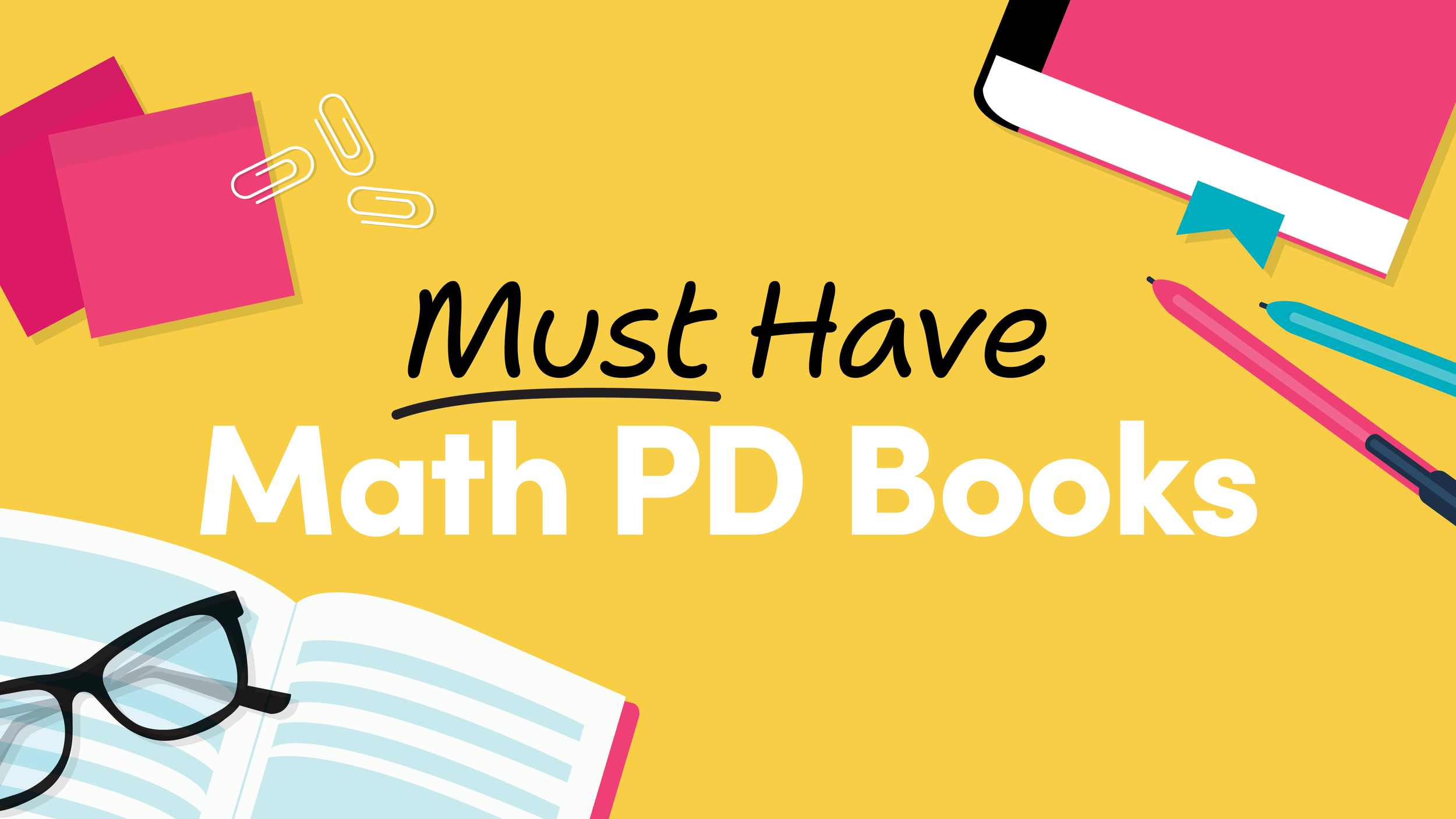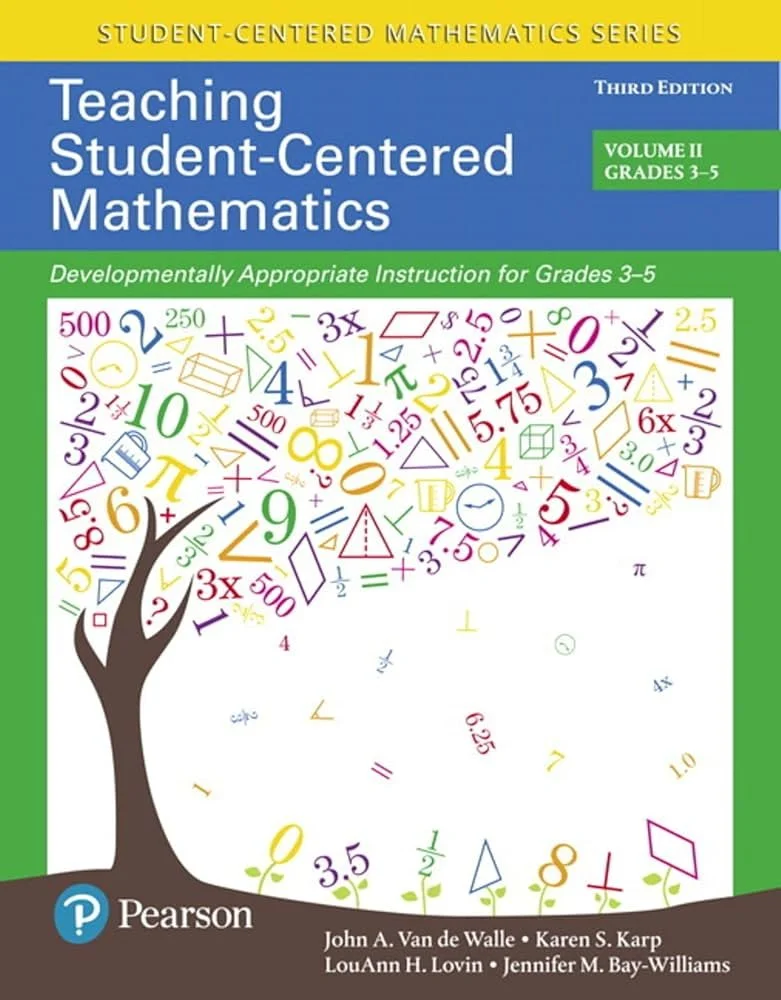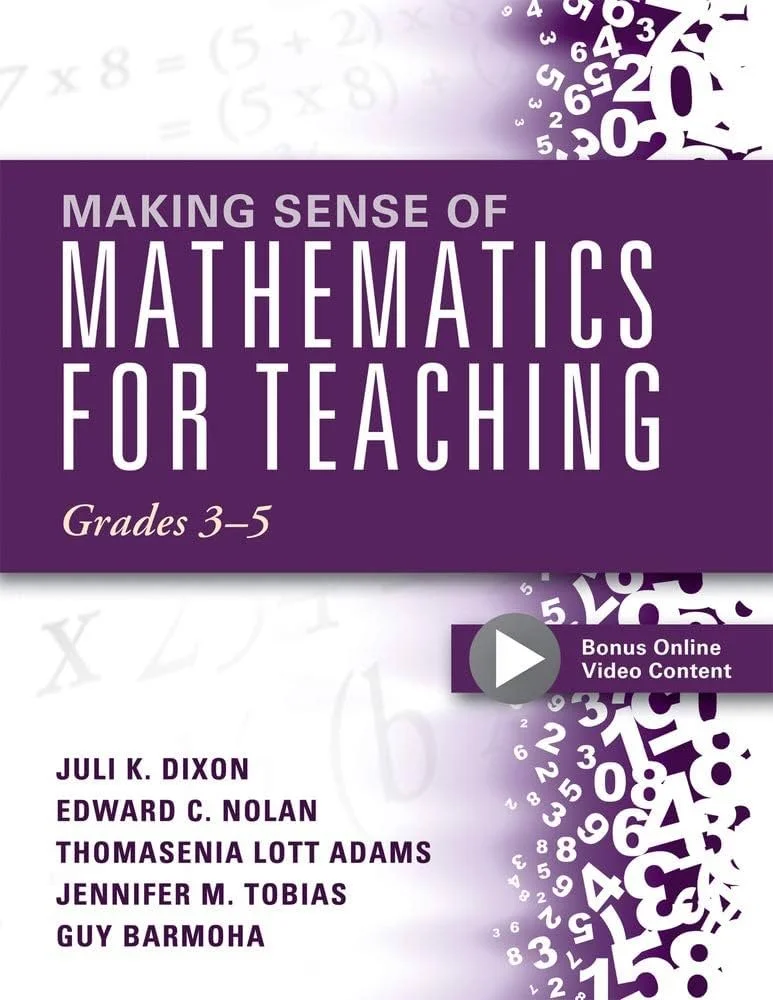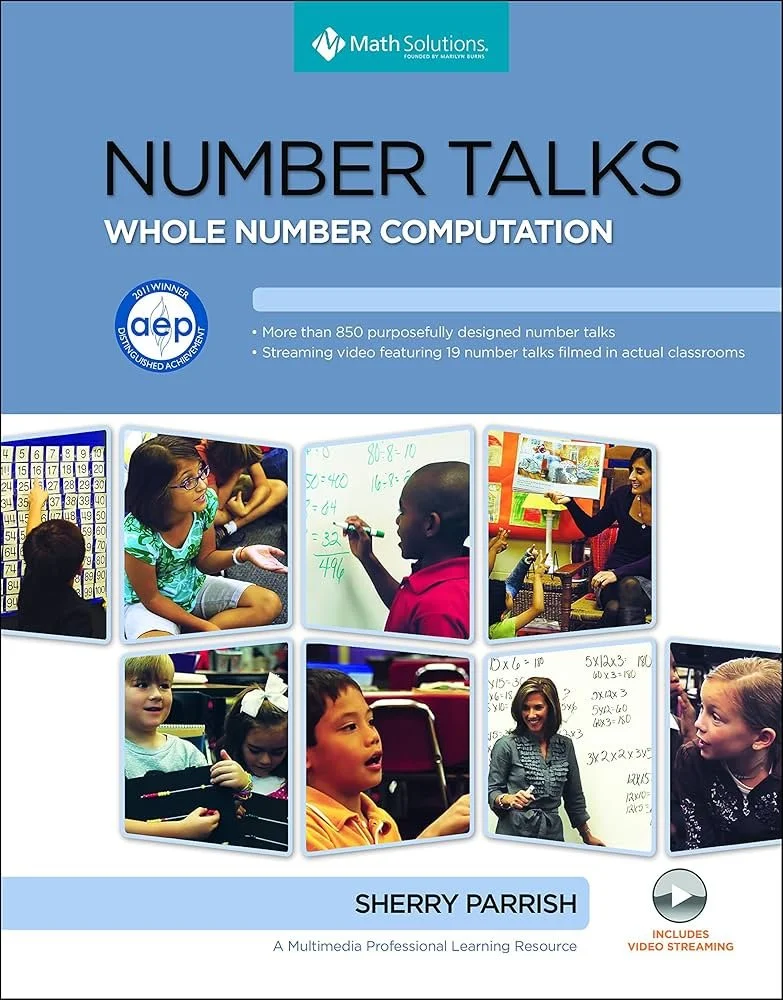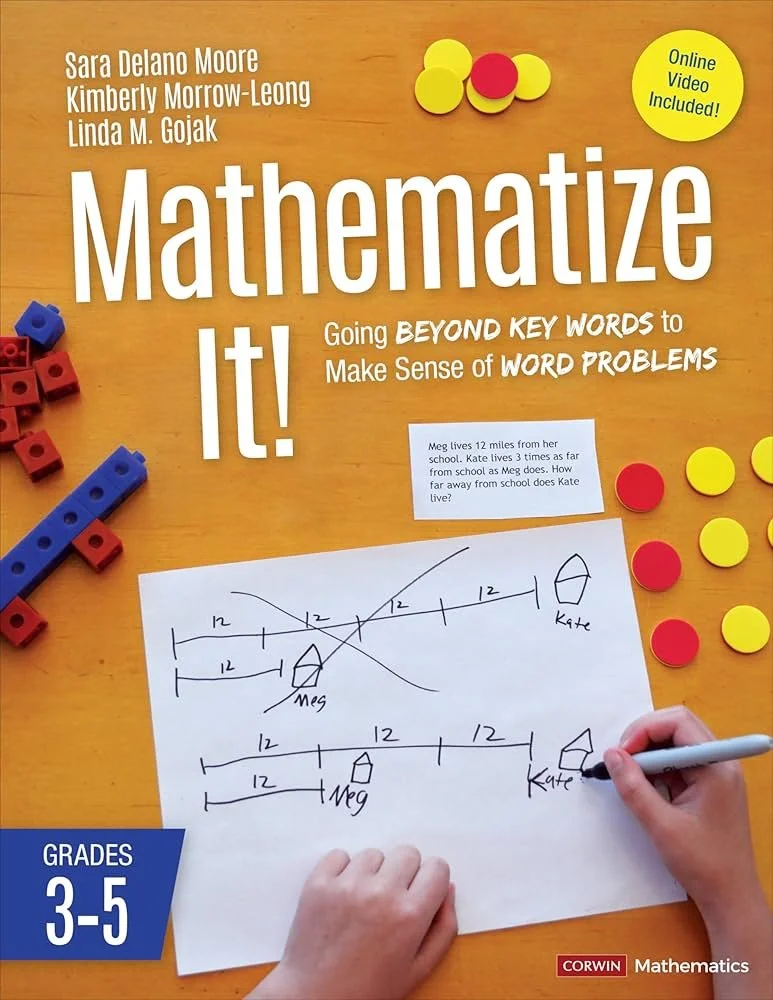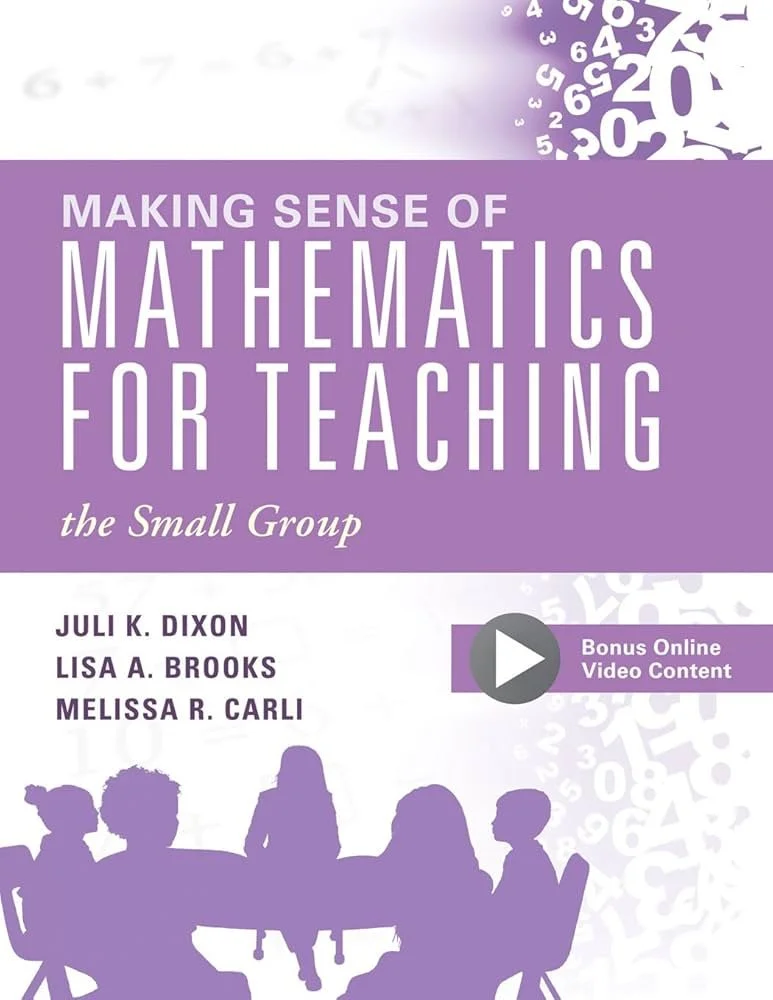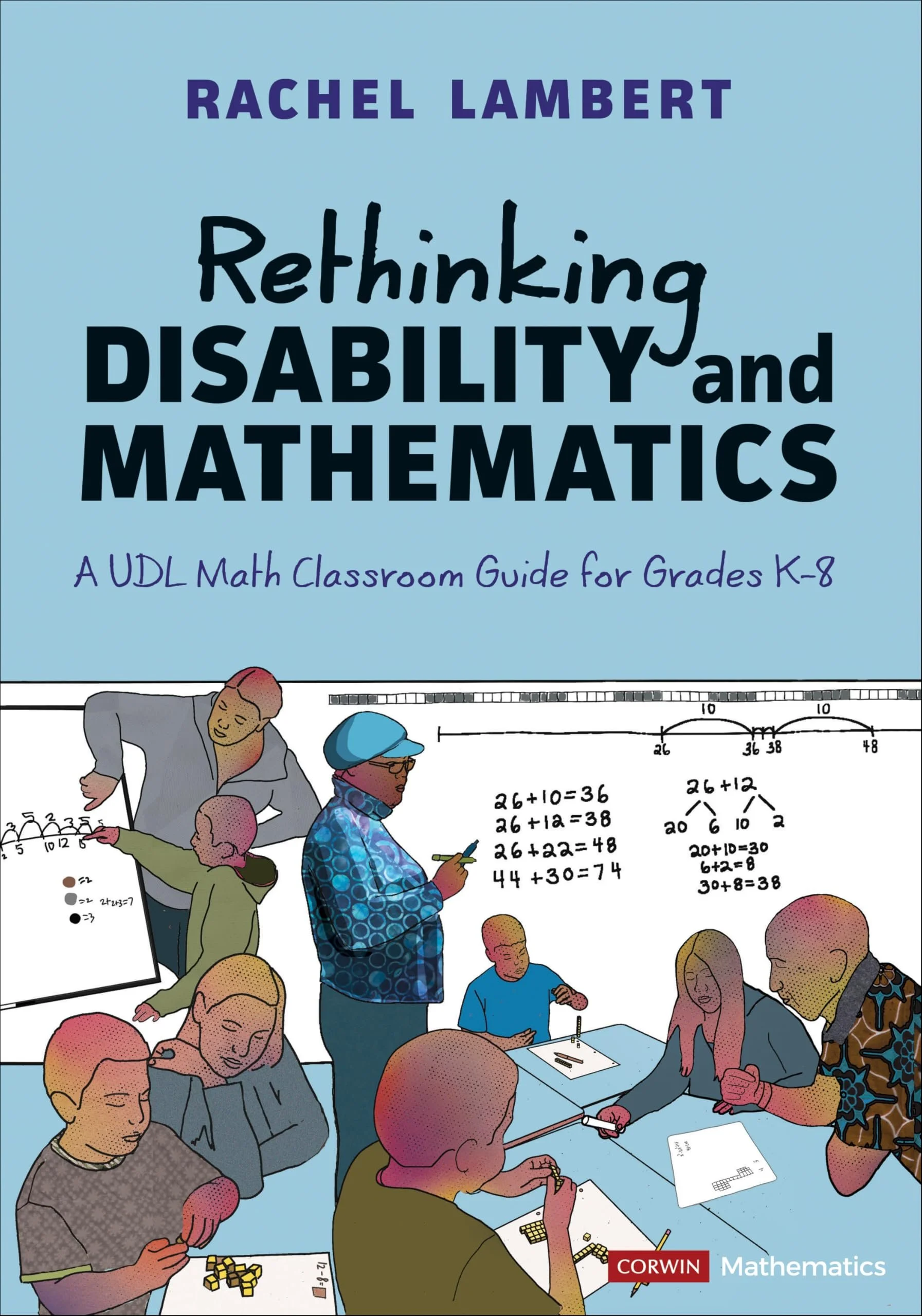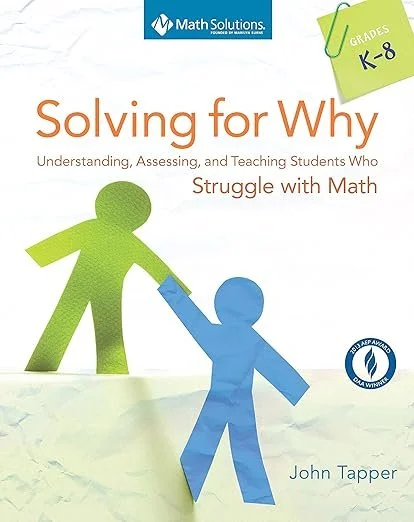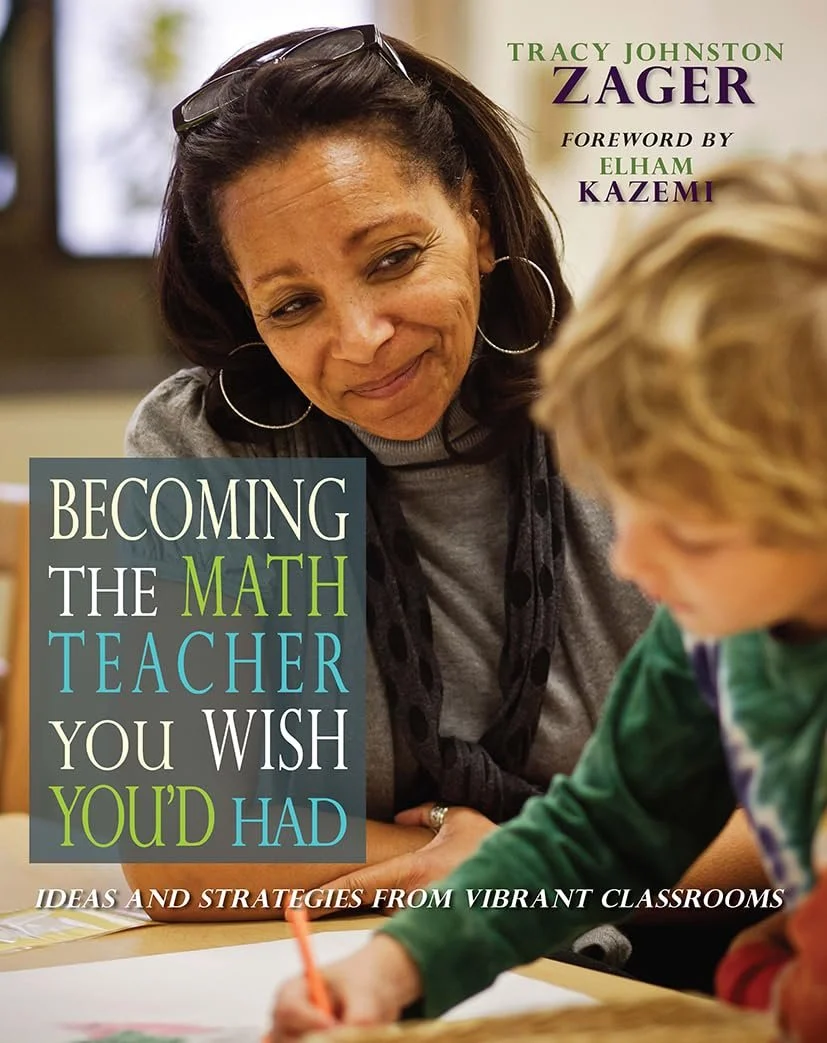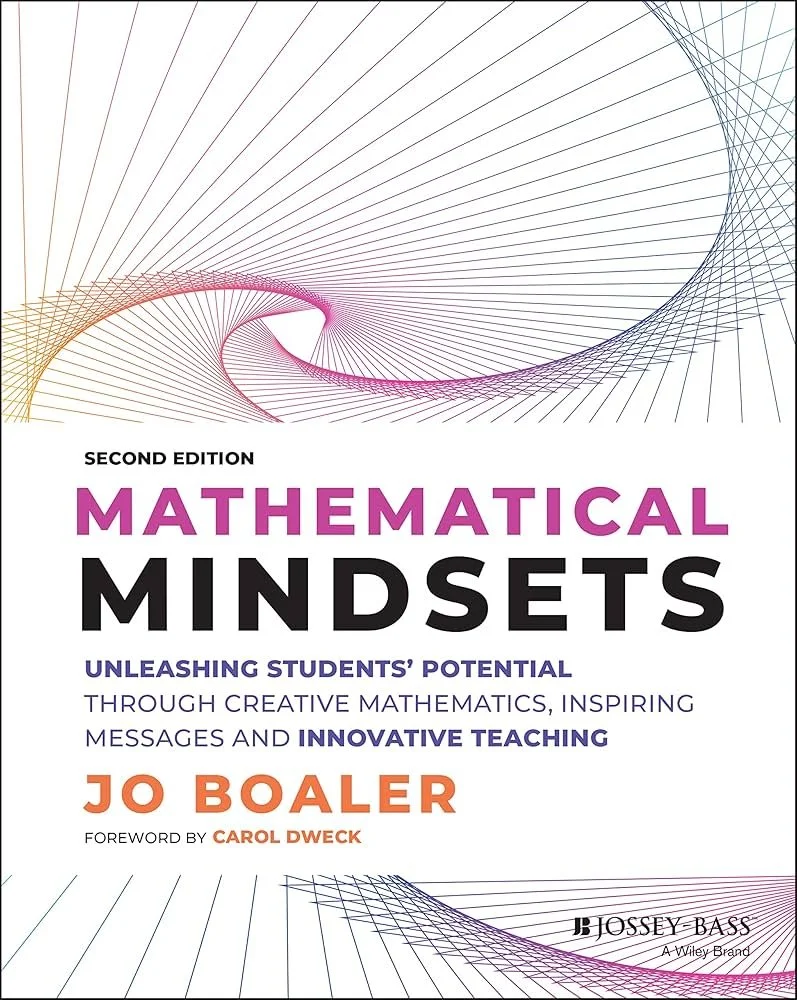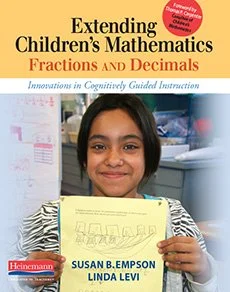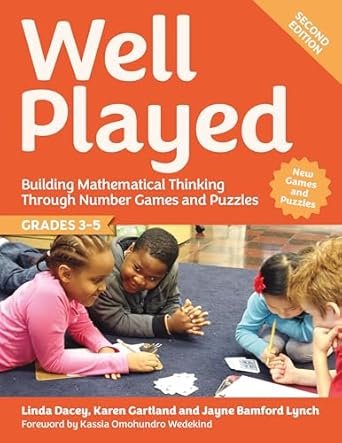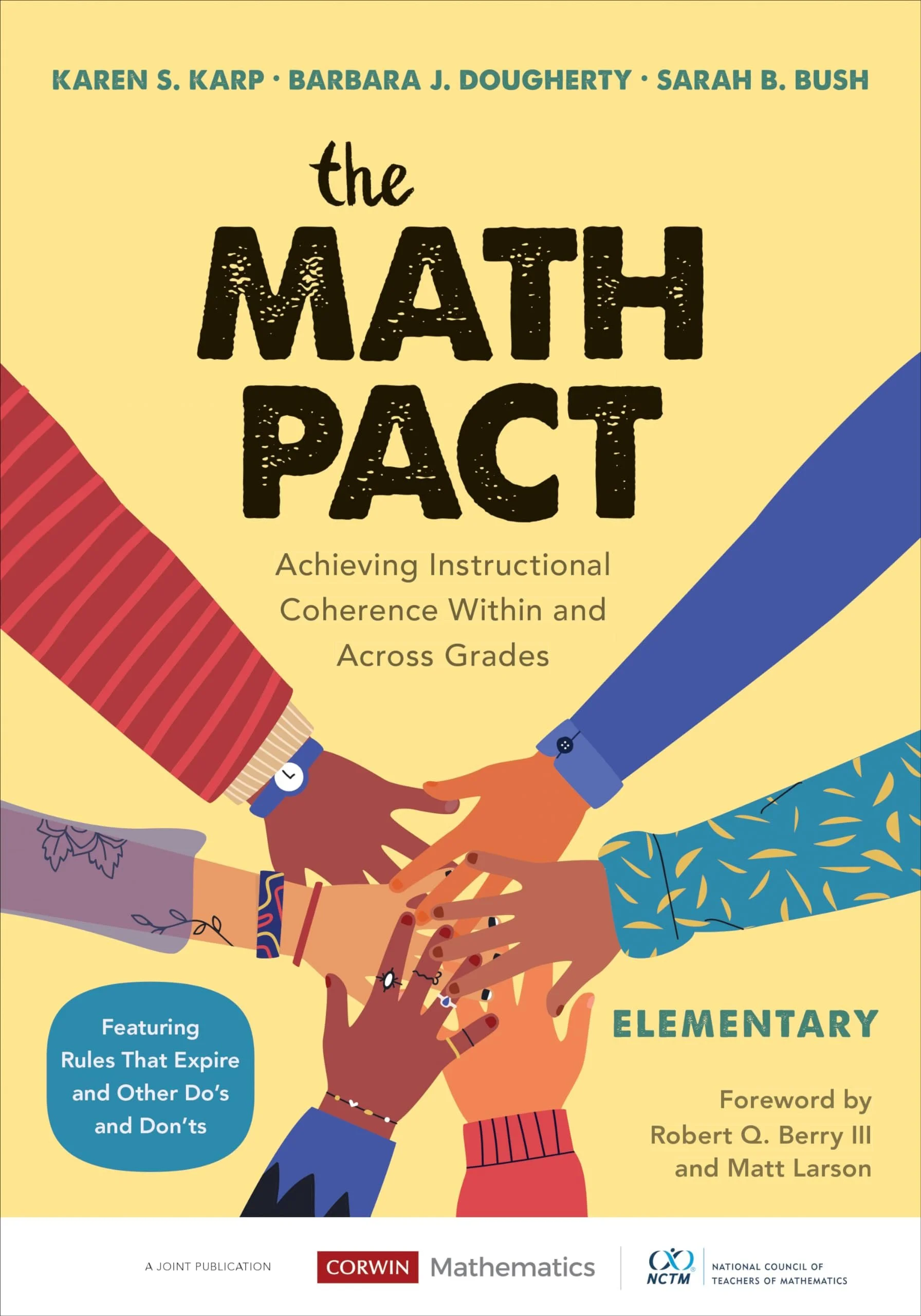Must-Read Math Professional Learning Books for Upper Elementary Teachers
Great math teaching doesn’t come from a perfect curriculum or the most beautifully structured math block… It comes from you. When teachers grow their understanding of math teaching and learning, everything else gets better: your explanations, your questioning, and your ability to respond to students in the moment.
That’s why we’ve rounded up our absolute favorite professional development books for 3rd-5th grade math teachers. Whether you're looking to build number sense, teach through problem solving, or support a wide range of learners, there’s something here for you. These are the books that have made the biggest impact in our own practice, and we believe in their ability to impact yours, too.
To make it easier to find what you’re looking for, we’ve grouped the books into categories based on their focus. They’re not ranked or listed in any particular order. We love them all equally and think each one brings something valuable to the table!
*This post includes some affiliate links that, when used, help support me and the creators of the products and resources we recommend. Know that we do not recommend anything we haven't personally used and loved. Thank you for your support!
Books to Better Understand the Math You Teach
Want to feel more confident teaching math? These books help deepen your content knowledge and show you how to represent concepts in multiple ways, such as using visuals, tools, language, and real-world contexts.
Teaching Student-Centered Mathematics
by John A. Van de Walle, Karen S. Karp, LouAnn H. Lovin, and Jennifer M. Bay-Williams
This book is one of our favorites, and we refer to it all of the time! It has shaped the way educators teach math for years.
The first part of the book covers best practices when it comes to teaching math, and the second part of the book is a deep dive into the different math concepts taught in 3rd-5th grade.
Teaching Student-Centered Mathematics is more of a textbook than a read-all-at-once book, so you can pick and choose the parts you need at the time that’s right.
Making Sense of Mathematics for Teaching
by Juli K. Dixon, Edward C. Nolan, Thomasenia Lott Adams, Jennifer M. Tobias, Guy Barmoha
This book breaks down the progression of key math ideas in grades 3–5 in a clear and accessible way. It focuses on helping teachers build conceptual understanding alongside fluency, making it a valuable resource for anyone looking to make math more meaningful and connected for their students.
We love that it also includes tasks that stretch your own mathematical thinking. Whether you're brand-new to upper elementary or a veteran teacher refining your craft, this book offers insight and practical tools you can use right away.
Books to Help You Develop Students’ Fluency and Number Sense
Fluency is about more than recalling math facts quickly. These books help students develop number sense and think flexibly, efficiently, and accurately about numbers.
Figuring Out Fluency in Mathematics
By Jennifer M. Bay-Williams and John J. SanGiovanni
This book reframes fluency as developing flexible and efficient strategies, not memorization. It clearly breaks down the essential strategies students need to build fluency with addition, subtraction, multiplication, and division.
We love that it brings much-needed clarity to what fluency is (and isn’t). It’s perfect for teachers who know that timed tests aren’t the answer but need practical, research-based strategies to use instead. This book has so many activities and routines that build fluency!
Note: This book was our 2025 book study pick! You can watch the book chats here and download the workbook here.
Number Talks
By Sherry Parrish
This book is the go-to guide for leading purposeful, student-centered number talks in the classroom. It offers a clear framework for helping students develop mental math strategies, improve number sense, and engage in rich mathematical conversations.
We love how practical and teacher-friendly it is. The routines in this book not only strengthen computation skills, but also build students’ confidence, flexibility, and identity as mathematicians. Whether you’re new to number talks or looking to deepen your practice, this book is a must-have.
Books to Help You Develop Students’ Problem-Solving Skills and Perseverance
As math teachers, our end goal is to create students who feel confident tackling all the real-life, math-related situations that they’ll encounter in their everyday lives. These books help teachers learn how to support students in thinking deeply, developing perseverance, and solving challenging problems.
Productive Math Struggle
By John J. SanGiovanni, Susie Katt, and Kevin J. Dykema
This book explores how to create math classrooms where struggle is not just expected, but embraced as part of the learning process. It offers practical strategies, tasks, and routines that help students persist through challenges and build understanding along the way.
We love that it’s packed with actionable ideas to promote productive struggle without overwhelming students. It encourages a powerful shift from rescuing students to building their resilience, helping them become more confident and capable problem solvers.
Note: This book was our 2024 book study pick! You can watch the book chats here and download the workbook here.
Mathematize It!
By Sara Delano Moore, Kimberley Morrow-Leong, and Linda M. Gojak
This book helps teachers move beyond keywords and tricks by showing how to support real mathematical thinking during problem-solving. It provides a clear framework for helping students make sense of word problems using multiple representations and real-world contexts.
We love that it gives teachers a practical approach for teaching problem-solving, not just solving problems. The focus on visual models, reasoning, and authentic tasks means it’s great for building students’ understanding.
Note: This book was our 2022 book study pick! You can watch the book chats here and download the workbook here.
Books to Help You Support a Wide Range of Learners
As teachers, we want to meet every student where they’re at, but this can be challenging when you have a wide range of learners, students with diverse needs, or students with unfinished learning. These books are fantastic if your goal is to support every student in your class!
Making Sense of Mathematics for Teaching: The Small Group
By Juli K. Dixon, Lisa A. Brooks, and Melissa R. Carli
This book offers a framework for planning and delivering small group math instruction that is responsive, focused, and effective. It walks teachers through identifying student needs, forming groups, selecting meaningful tasks, and using student thinking to drive instruction.
We love that it’s a comprehensive guide to small group teaching that doesn’t just tell you what to do, but also helps you understand why it matters. It gets to the heart of formative assessment and targeted support, making it a go-to resource for differentiation and intervention.
Note: This was our 2020 and 2021 book study pick!
Rethinking Disability and Mathematics
By Rachel Lambert
This book challenges traditional views of disability in math education and offers a new vision rooted in equity, inclusion, and student strengths. Through real-world examples and case studies, it shows how to design math instruction that benefits all students.
We love that it’s both practical and thought-provoking. It offers a strengths-based approach to teaching that helps teachers create more inclusive math classrooms where every student is seen as capable of deep mathematical thinking.
Solving for Why
By John Tapper
This book helps teachers look beyond wrong answers to uncover the real reasons students struggle with math.
With a focus on diagnosing misconceptions, it offers tools, strategies, and insights to better understand and support individual learners.
We love that it’s packed with practical ways to identify what’s holding students back. While it’s perfect for intervention settings, the focus on thoughtful, student-centered instruction makes it just as valuable for general-education classrooms.
Books to Transform the Way You Teach Math
These are the books that will inspire mindset shifts around what effective math teaching is, help you reimagine classroom structures, and build a positive math culture.
Building Thinking Classrooms
By Peter Liljedahl
This book lays out a framework for transforming your classroom into a space where students take the lead in mathematical thinking. It includes practical routines to move students away from passive learning and toward active, deep thinking.
We love that it challenges the status quo in the best way. It gives teachers a clear, actionable path to create a classroom where thinking (not just answering) is the norm.
Note: This book was our 2023 book study pick! You can watch the book chats here and download the workbook here.
Becoming the Math Teacher You Wish You Had
By Tracy Johnston Zager
This book is part inspiration, part professional development, and part pep talk for math teachers. It pushes beyond answer-getting and offers practical ways to help students think, reason, and communicate like real mathematicians.
We love how affirming and energizing the writing is. It’s the kind of book you reach for when you’re feeling stuck or overwhelmed, because it’s a powerful reminder of why teaching math matters and how you can make it meaningful for every student.
Note: This book was our 2018 book study pick!
Mathematical Mindsets
By Jo Boaler
This influential book explores how students’ beliefs about themselves as math learners impact their success, and how we, as teachers, can help shift those beliefs. Grounded in research and classroom examples, it offers practical ways to build math confidence, foster growth mindsets, and promote equity.
We love how it invites us to reflect on our own math experiences and beliefs, so we can create classrooms where all students see themselves as capable mathematicians. It’s a must-read for anyone working to make math more inclusive and empowering.
Honorable Mentions
While these books didn’t quite fit into the above categories, they’re still worth a spot on your shelf! These books offer powerful insights and tools, especially for teachers ready to dig a little deeper into math concepts or system-wide change.
Extending Children’s Mathematics: Fractions and Decimals
By Susan B. Empson and Linda Levi
This book takes a deep dive into how students build understanding of fractions and decimals over time. Grounded in real classroom examples, it offers insight into the progression of learning and how to support it through student-centered instruction.
This book is one of several books related to Cognitively Guided Instruction. We love that it goes beyond surface-level strategies to show how kids truly make sense of these tricky concepts.
Well Played
By Linda Dacey, Karen Gartland, and Jayne Bamford Lynch
This book is full of engaging, purposeful math games that help students build number sense, reasoning, and strategic thinking. Each game is easy to implement and designed to deepen mathematical understanding.
We love that it takes math games (which can sometimes feel like time-fillers) and shows teachers how to make them truly meaningful. These games are versatile and can be used in many different ways throughout your math block! The focus on strategy and intentionality helps turn game time into rich learning time.
The Math Pact: Achieving Instructional Coherence Within and Across Grades
By Karen S. Karp, Barbara J. Dougherty, and Sarah B. Bush
This book is a practical guide for schools and districts working to create consistent, coherent math instruction across grade levels. It emphasizes the power of shared language, aligned routines, and a unified vision for teaching math.
It’s perfect for teams looking to move beyond isolated classroom practices and build a schoolwide or districtwide approach for math teaching that truly supports student learning.
No matter where you are in your teaching journey, growing your own understanding is one of the most powerful things you can do for your students. Whether you’re digging into content, exploring new strategies, or rethinking how you approach your math block, these books are here to support you every step of the way.
We hope you found a few titles to add to your stack and that they leave you feeling inspired, empowered, and more confident as a math teacher! If you’re looking for even more math PD book ideas, check out our full list of recommended books in our Amazon storefront!

